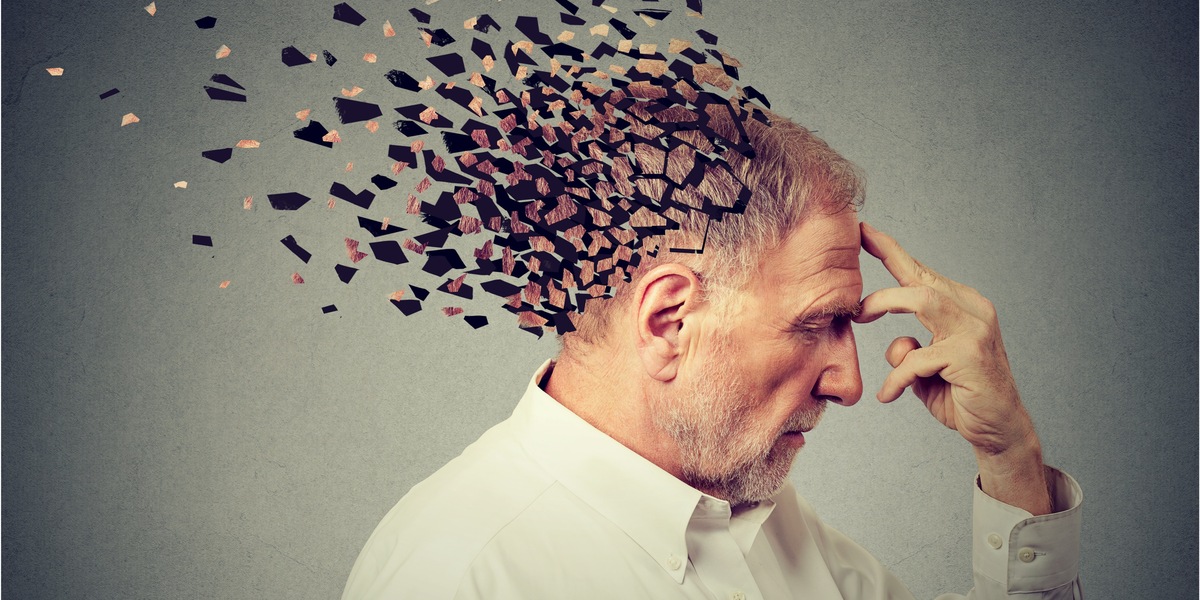Stars in the Sky: Psychosis in Huntington’s Disease
New research shines a light on an often-overlooked side of Huntington’s disease—psychosis. Understanding the impact of psychosis on daily life and progression of other HD symptoms could be key to providing better care and support.
By Maille (Molly) Gracey April 07, 2025 Edited by Dr Sarah Hernandez
Imagine battling a disease that not only affects your body but also causes your mind to lose touch with reality, making it hard to see the world as it really is. This is the heartbreaking reality for many people living with Huntington’s disease (HD) who also experience symptoms of psychosis. Professor Clement Loy and his inspiring team of researchers from the University of Sydney investigated how psychosis symptoms in HD may affect the lives of these people.
Breaking the Silence
HD can cause symptoms across three main areas: mood, mind, and movement. For some people with HD, one of these areas may be more impacted than the others. What’s important to remember is that each person with HD has their own unique journey, much like how every star in the sky is unique. Symptoms and progression can vary from one person to the next.

For some people with HD, mood and mind symptoms can be more intense, and this can sometimes lead to a set of symptoms known as psychosis. A person struggling with psychosis symptoms may experience hearing voices that aren’t there, having hallucinations, believing things that aren’t true, or feeling confused about what is real and what is not.
This can add an extra layer of difficulties for someone who is already struggling with other symptoms associated with HD. Psychosis can be a sensitive topic for some, but by opening up discussions around psychosis, it is hoped that the topic will become more widely understood and talked about.
Shining a Light
An important study by Professor Loy and his team investigated how psychosis symptoms may impact daily life and the progression of HD. They aimed to better understand the challenges faced by people with HD, who also suffer from psychosis symptoms. Beyond the mental toll, the researchers concluded that psychosis appears to have an impact on particular movement symptoms in HD.
The researchers gathered information from people who tested positive for the gene that causes HD – both individuals displaying movement symptoms, as well as individuals who were not yet displaying any movement symptoms.
“Studies like this remind us that mental health is just as important as physical health in HD care. By talking openly and honestly about psychosis symptoms, we empower people with HD, their loved-ones, and medical professionals to provide better support and reduce misconceptions. ”
Over 1,000 participants were invited to complete questionnaires and assessments to measure mood, mind, and movement symptoms, every year, for 5 years.
- Movement symptoms were measured by participants performing different motor tasks, such as walking in a straight line.
- Mind symptoms were measured through an interview with a researcher. This involved remembering and repeating words and following simple instructions.
- Mood symptoms were assessed through a questionnaire. Questions focussed on assessing mental health and behaviour in participants. For example, do they feel sad, nervous, or frustrated?
Different Stars, Different Paths
Around 1 in 6 people with HD, about 18%, in this study experienced psychosis symptoms at some point during their lives. In those people, the researchers found that they had less independence and ability to carry out day-to-day tasks, reduced cognitive ability, and increased behavioural symptoms. This is perhaps unsurprising given the intense effect that psychosis can have on a person’s ability to function, think, and behave.
One of the more surprising findings in this research was that people with HD who experienced psychosis symptoms appeared to experience less uncontrollable jerky movements or uncontrolled twitching. These very common movement symptoms - known as chorea - are often seen in people with HD.

To make sure there weren’t external factors contributing to reduced chorea, the scientists adjusted for the use of some medications, like antipsychotics and tetrabenazine, that can affect movement symptoms associated with HD. However, the authors acknowledge that a limitation of this study is the lack of detail around dose and duration of the use of these types of medications. Even still, this finding highlights how some people with HD will experience very different levels of mood, mind, and movement symptoms. This enlightening research by Professor Loy and his team, reflects back to how unique each person with HD is.
This research has raised interesting questions: Could those who experience psychosis symptoms in HD have different brain chemistry or genetics compared to those who do not experience psychosis symptoms? This is because those with psychosis symptoms did not seem to follow a similar pattern for movement symptoms, compared to those who do not experience these symptoms. Although this study did not provide definitive answers, it does support the idea that HD does not follow a ‘one-size-fits-all’ approach.
Guiding the Way
For individuals and families affected by HD, the presence of psychosis symptoms can be particularly distressing. Caregivers may struggle to understand the sudden paranoid thoughts or when their loved-one is hearing or seeing things that aren’t really there. The person with HD, who is also experiencing psychosis, may feel confused, frightened, or defensive when their reality does not align with others.
If you are a person with HD or if you are a caregiver for someone with HD and relate to some of the psychosis symptoms discussed in this article, you are not alone. There are a number of coping strategies that you can try to help to manage these symptoms better, which could improve quality of life.
“For people navigating the journey of HD, one message remains clear: you are not alone, and your experiences, both physical and emotional, are valid and worthy of support. ”
Potential Coping Strategies for Psychosis Symptoms
- Medication Management: Antipsychotic medications may help, though their use must be carefully balanced as they can sometimes worsen movement symptoms. If you want to explore the use of antipsychotic medication, please consult a medical professional, such as your psychiatrist.
- Psychological Support: Therapy can help both people with HD and caregivers in managing distressing symptoms.
- Routine and Structure: Providing a predictable, supportive environment may help ease feelings of agitation and confusion for people with HD.
- Open Conversations: Recognising and discussing symptoms without judgment can help increase understanding and reduce stigma of psychosis symptoms.
Shattering Stigma
Psychosis, particularly when linked to a condition such as HD, remains a difficult topic to discuss. There is often fear and misunderstanding surrounding psychosis symptoms. However, studies like this remind us that mental health is just as important as physical health in HD care. By talking openly and honestly about psychosis symptoms, we empower people with HD, their loved-ones, and medical professionals to provide better support and reduce misconceptions.
HD effects both body and mind in deeply intertwined ways. As research continues to unravel the mysteries of HD, understanding the mood and mind aspects, including psychosis, will be key to providing compassionate and effective care. For people navigating the journey of HD, one message remains clear: you are not alone, and your experiences, both physical and emotional, are valid and worthy of support.
Remember, each person living with HD shines in their own unique way, like a star in the sky, adding their light to the world in ways only they can. As we continue to learn and grow together, let this article be a source of strength, compassion, and hope, illuminating the path for others facing similar challenges.


